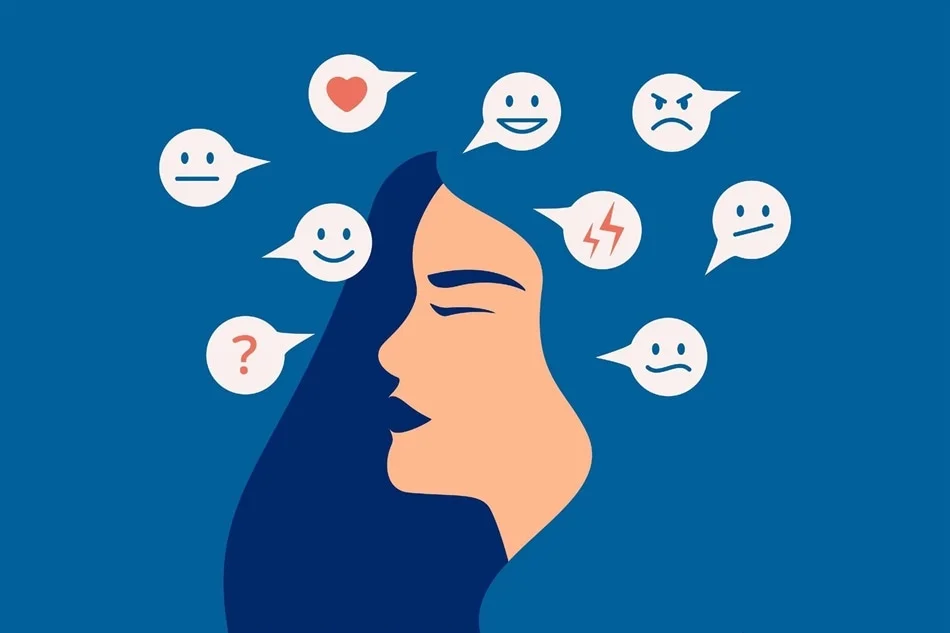
You don’t notice it at first. You just feel off. It doesn’t begin with sadness—it begins with something quieter, deeper, more chemical than thought. Days feel slower. Reactions feel heavier. Emotions shift, not from outside—but from inside.
You question your mindset. You blame stress. But nothing fixes the weight. Because the source isn’t visible. It’s hormonal. And it moves silently through the body.
Before anyone asks how you feel, your endocrine system already decided.
Hormones don’t just shape the body—they shape the emotional landscape
Mood swings aren’t just dramatic moments. Hormones don’t just shape the body—they shape the emotional landscape. They color your day. Tilt your response. Silence joy without clear cause.
Estrogen, cortisol, thyroid hormones—they don’t only influence cells. They influence self-perception. The difference between resilience and collapse often begins in them.
And when they misfire, emotions follow.
Depression doesn’t always come from circumstance
You feel the fog. But nothing “bad” happened. Depression doesn’t always come from circumstance. It can arrive hormonally. Gradually. Without invitation.
Low thyroid levels dull emotion. Low testosterone dulls drive. High cortisol burns through hope. And you never saw it coming.
Therapy helps. But when chemistry is misaligned, the words feel flat. Treatment must match the source.
Anxiety often rides alongside hormonal imbalance
Your heart races. Your chest tightens. And no one sees the cause. Anxiety often rides alongside hormonal imbalance. Not from trauma—but from shifts.
High cortisol. Fluctuating estrogen. Blood sugar crashes. They create panic in a body that seems still. They tell your nervous system something is wrong—even when it’s not.
And you believe it, because the feeling is real. Even if the reason isn’t.
Memory changes aren’t always aging
You walk into rooms and forget why. Words vanish mid-sentence. Memory changes aren’t always aging. Estrogen supports cognition. Thyroid hormones affect recall.
When these drop, thinking becomes fog. Processing slows. You lose the thread, not from distraction—but from disconnection.
No one links it to hormones. But your brain remembers imbalance longer than you do.
Emotional exhaustion can be chemical, not personal
You feel drained. But not from doing too much. Emotional exhaustion can be chemical, not personal. Low progesterone flattens mood. Low testosterone weakens motivation.
It’s not laziness. It’s loss—of feedback, of clarity, of rhythm. You’re doing less, but it costs more.
And rest doesn’t restore what hormones no longer provide.
Sleep loss deepens the emotional fallout
You lie awake. Or wake too early. Sleep loss deepens the emotional fallout. Hormones that regulate calm, focus, resilience—can’t function without sleep.
Cortisol stays high. Melatonin stays low. Serotonin drops. And what begins as tiredness becomes mood instability. Fear. Helplessness.
You don’t just miss sleep—you miss restoration.
PMS and PMDD aren’t exaggerations—they’re hormonal spirals
Mood changes before a cycle aren’t weakness. PMS and PMDD aren’t exaggerations—they’re hormonal spirals. Estrogen drops sharply. Progesterone disappears.
And the nervous system responds with pain, irritability, hopelessness. Not just once. Repeatedly. With every cycle.
It’s not imagined. It’s endocrine. And it deserves attention.
Hormonal disorders distort how you see yourself
You cry easier. You snap faster. You feel foreign in your own skin. Hormonal disorders distort how you see yourself. Your reactions feel unearned. Your thoughts feel untrustworthy.
This isn’t about overreacting. It’s about chemical confusion. The feedback loop between mind and hormone short-circuits. And identity shifts.
You’re not broken. But your inner signals are scrambled.
Healing starts when the emotional is treated as physical too
You try to talk it out. You try to push through. But healing starts when the emotional is treated as physical too. Bloodwork. Support. Regulation. Patience.
You don’t have to wait for rock bottom. You don’t need to explain every emotion. You just need someone to consider what your hormones are doing.
Because your feelings might not be failing you. They might be following something unseen.
